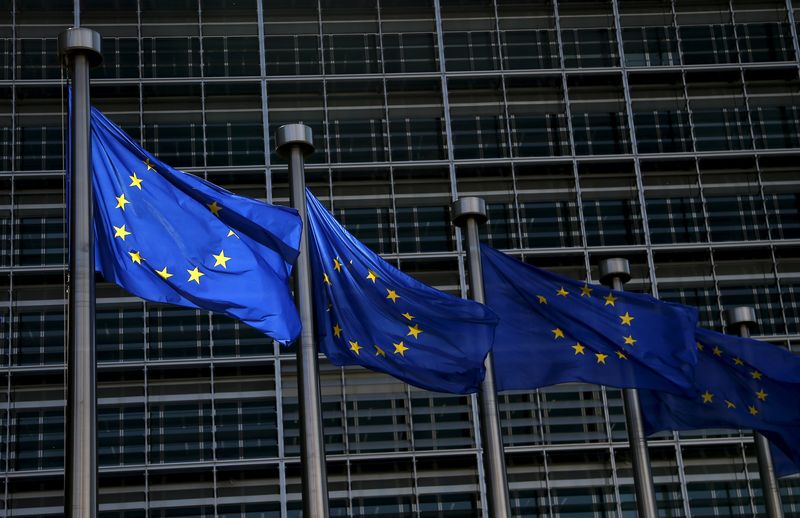(Bloomberg) -- France expects the European Union to strike a deal on a contentious pandemic recovery plan next month, according to an official familiar with the government’s thinking.
President Emmanuel Macron’s office also thinks that discounts could be offered to countries for their dues to the bloc as a way to build support for the plan, said the official, who requested anonymity because the plans are private.
The bloc’s 27 leaders will hold a video conference on June 19 for the first time to discuss the EU’s 750 billion-euro ($841 billion) plan that would funnel money to those countries most affected by the economic effects of the coronavirus. The proposal would make as much as 500 billion euros available as grants and 250 billion euros in loans.
The program, which needs to win the backing of every capital, would be funded by joint debt issuance in a significant step toward closer economic integration.
Budget Rebates
Denmark, the Netherlands and Sweden, which have voiced strong opposition to the extraordinary EU plan to issue common debt, received reductions in their contributions to the 2014-2020 budget of 130 million euros, 695 million euros and 185 million euros, respectively. Those rebates wouldn’t necessarily carry over into the next budget, which still needs to be finalized.
The Danish government has indicated that its top priority in the upcoming talks on the EU plan will be to maintain their budget rebate and that the other concerns were secondary.
No agreement on the budget or the recovery plan and the EU budget for 2021-2017 is expected at the meeting later this week, the French official said, echoing comments by German Chancellor Angela Merkel. Rather, one or two in-person summits might be needed. The official added that an agreement was necessary by the end of July since other topics, such as climate change and Brexit, will also need to be dealt with.
France’s main priority is for the EU to disburse 500 billion euros in grants, in line with a proposal offered by Macron and Merkel, the official said, adding that conditions to obtain the funds should not be akin to the intrusive and bureaucratic standards of the post-2008 crisis bailout.
The official said Austria, Denmark, the Netherlands and Sweden were the only ones to oppose grants.
©2020 Bloomberg L.P.

